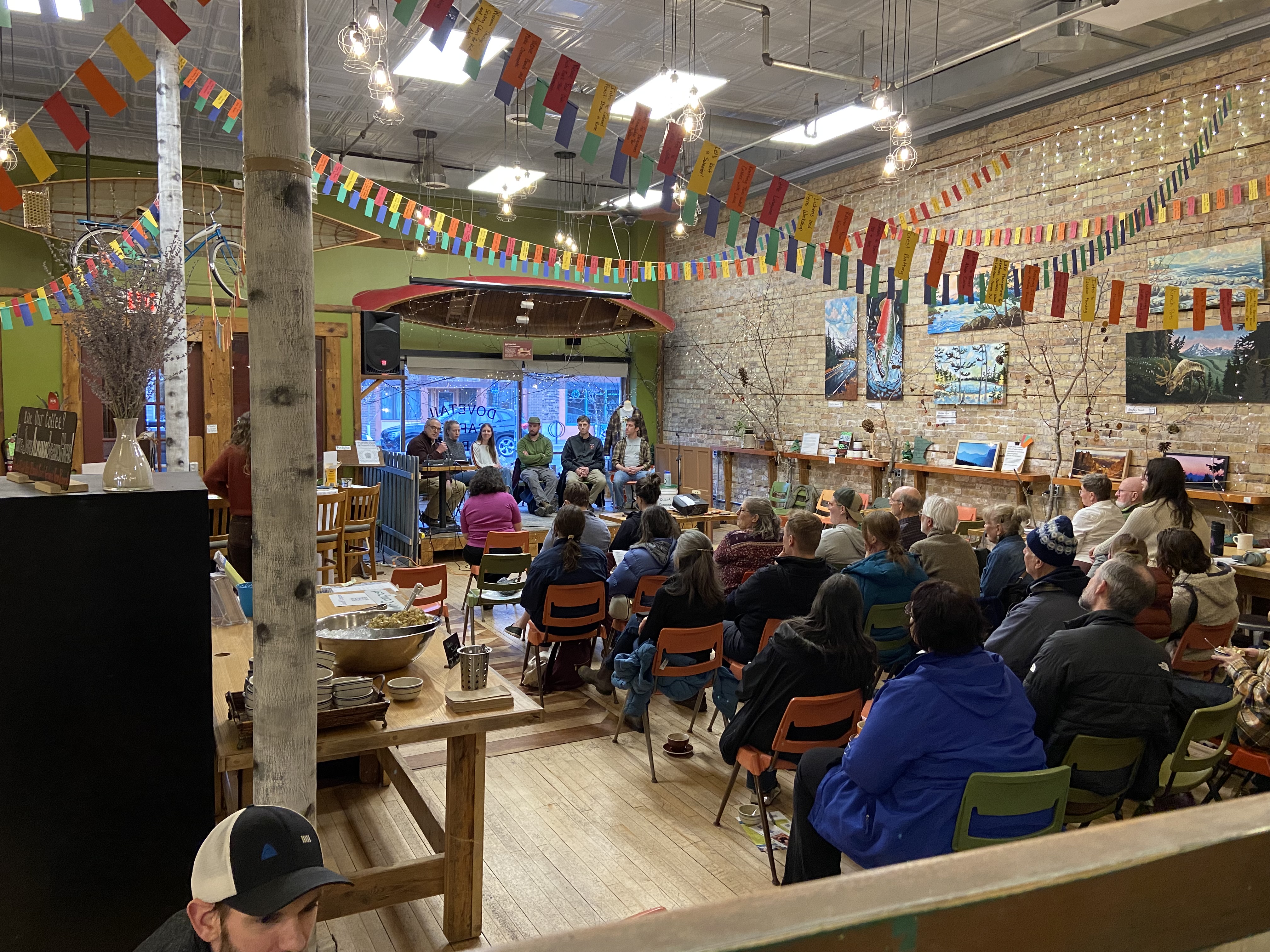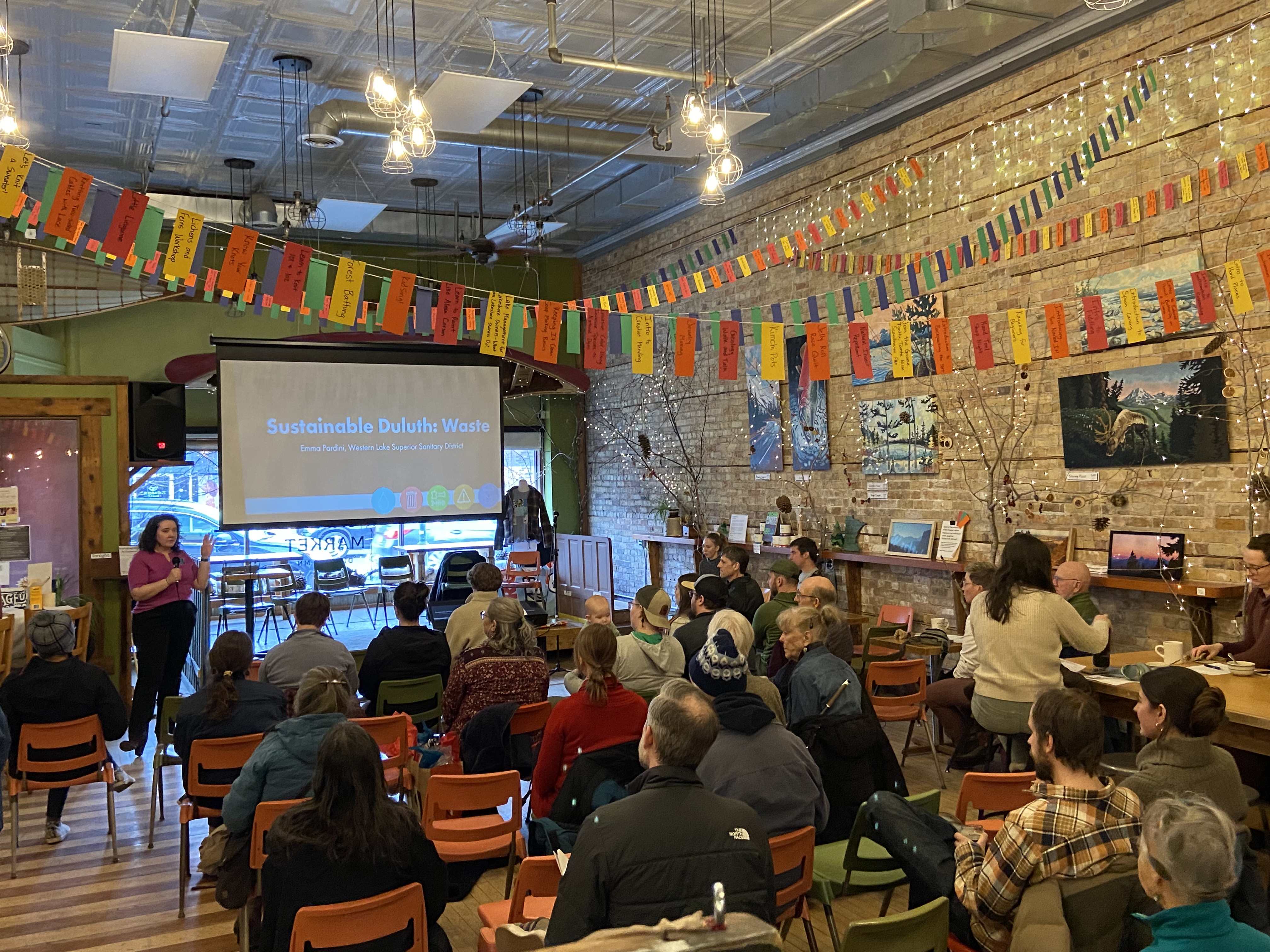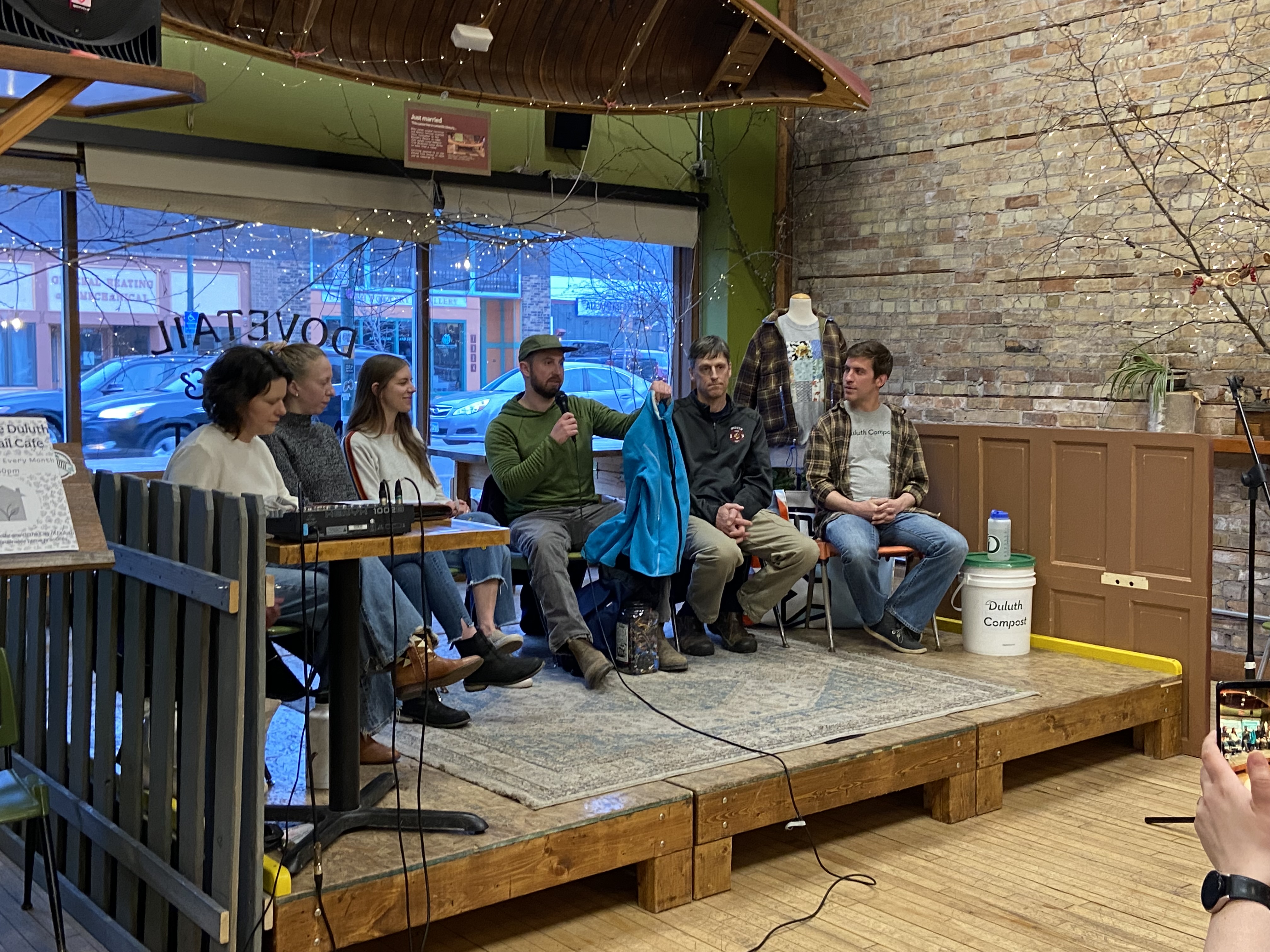Sustainable Duluth: Waste

For the fourth Sustainable Duluth workshop, we talked about waste! We hosted multiple local experts to speak about the history of our region's solid waste authority, avenues of waste disposal, creative ways to reduce your waste, and the future of waste. If you were unable to attend this workshop, here's what you missed:
Emma Pardini an Environmental Program Coordinator at Western Lake Superior Sanitary District (WLSSD) was our main speaker at this workshop and kicked the night off with a presentation about the importance of our waste management systems in our region that contributes to the health of rivers and lakes downstream from us. The first flush of wastewater arrived in 1978 when the wastewater treatment plant in Lincoln park began operation. Before this, solid waste incinerators were used to save power and power the wastewater system. These incinerators were closed due to pollutants in the ash reentering the water system when waste was burned. Today the WLSSD treatment plant ensures contaminants are removed from the water before reentering the St. Louis River. To help this process WLSSD reminds residents to only allow the 3 P's to go down the drain: pee, poo, and paper.
The next topic Emma introduced us to was hazardous waste. While there is no hazardous waste processing plant in Duluth it is still very important that all hazardous waste gets brought to a hazardous waste site. When hazardous waste is brought in it is tested to determine how it should be packaged and shipped to a hazardous waste processing facility. To reduce the impact of hazardous waste on other communities WLSSD will denature the product and sort out any still usable material.

https://www.renmarketmn.com/And finally, Emma explained the management of solid waste. The Duluth landfill was filled in 1999, so a new Material Recovery Center on the old landfill site was developed to divert usable items from being wasted. Items such as electronics, mattresses, wood, and other items are all examples of things that might be saved in the Material Recovery Center. All of these items would then be brought to the Free Recovery Center where items saved from the landfill are free to be brought back to the community. All other waste is sent to the landfill in Superior to be picked through for hazardous materials, usable items, and recyclables. Despite WLSSD not operating any recycling facility it is Minnesota law that sorted recyclables are not allowed to be sent to landfills. It also became law in the early 2000s that yard waste could no longer be put into the trash, in response WLSSD opened their organics collection site where yard waste and food scraps are collected.
In total our region generates 124,000 tons of waste annually.
- 45,000 tons of recycling
- 5,000 tons of compost
- 25,000 tons of wastewater solids
- 30,000 tons of everything else goes to a landfill, mixed waste site, or a hazardous waste site.
Unfortunately, still nearly 20% of this waste is food scraps, and 20% is recyclables.
Looking ahead, WLSSD aims to focus on more research and evaluation of the region's waste management in order to develop new waste systems that focus on the importance of environmental justice. WLSSD encourages residents to expand their waste reduction and diversion habits and to stay curious, flexible, and persistent (learn more here).

To wrap up the evening, we hosted a panel of experts from around the area focused on waste reduction.
Kendra Dean is the founder and owner of Ren Market, Duluth's only zero waste store. The shop carries a wide variety of bulk personal care products, cleaning solutions, and soap, as well as plastic free alternatives for every day single-use products. Kendra's background is in environmental science and policy with a focus on environmental chemistry; she uses this background heavily when sourcing products to ensure that they are non-toxic, biodegradable, ethically produced, and as carbon-neutral as possible. Ren Market's mission is to provide sustainable and low waste alternatives at an affordable price to the Twin Ports communities.
Sohn Wehseler is the City of Duluth Property and Solid Waste Compliance Officer. He fields complaints related to public dumping, blighted private property, and abandoned vehicles. Compliance is the primary goal, which happens in a process sometimes spanning a couple of months. File a blight complaint here.
Carli Dudzik is the artist behind the brand CRAVEbyCRV and specializes in turning repurposed materials into wearable accessories. Popped kiddie pools become colorful earrings, vintage leather jackets into handbags, discarded billboards into giant tote bags and sleeping bags into coats. Bring her your holey clothes the 4th Sunday of every month at Ren Market for monthly clothing repair clinics! Find out more at cravebycrv.com or on social media @cravebycrv.
Nathan Bronk is the owner and operator of Duluth Compost, Duluth's compost pickup subscription service. We aim to reduce waste by diverting food waste and other compostable materials from landfills. We provide our subscribers with reliable pickups every other Sunday, along with a 5 gallon bucket and compostable bags for each pickup. I am a proud Duluthian and love making a positive impact with my neighbors and community.
Duluth Gear Exchange is a consignment shop specializing in the resale of used outdoor gear and clothing. DGE also provides repair services including zipper repair, tent patches, and shock cord replacement in tent poles.
Alivia Nelson is the Program Director for Grandma's Marathon. Her work at Grandma's Marathon focuses on ensuring the race has a positive impact on the community by supporting youth programs, volunteer opportunities, and sustainability. Grandma's Marathon was certified in 2023 by the Council for Responsible Sport at the Gold Level for its work to improve the environmental and social impacts of the event.
- Grandma's Marathon Equipment Loan Form
- Grandma's Marathon Volunteer Sign Up
- A Practical Guide to Hosting Radically Responsible Events
And for those interested in volunteer clean-up opportunities, check out Keep Duluth Clean!
Do you still have questions after this session? Come to our next session which will dive into the importance of health, equity and the environment on Thursday, April 18th, 6-7:30pm!




